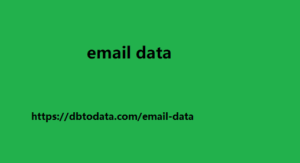One of the most frequent questions I get asked is: how long should an online article be to be effective? (and rank high up on Google) This is a trick question that puts anyone who gives you a precise number offside, because in reality – at least at the moment – there is no precise number on which to bet with certainty , even if some empirical numerical references can be given. The fact is that there is no precise answer because the question is probably too simplistic. There are, however, several variables along which to move: 1. Who do you write for? Writing for search engines VS Writing for users (it would be better, however, to be able to write for both …) 2.
What are your overall goals :
Do you want to convince people to do things, do you want to entertain, do you want to persuade, or do you just want to share what you think? 3. Specific objectives : when you choose the topic of what you write, do you want to solve a pressing need of a user? Do you want to position yourself as an “authoritative” and trusted author on a certain topic? Do you talk about big systems or are you simply looking for comparison? 4. Context : How much time do you have? How many articles can you write each month? How much “competition” is there on the topic?
Based on the answers you give along these variables
Your way of writing, of presenting information, of exploring and opening up related topics… and of writing more or less long texts will change . But if you really can’t do without numbers and concrete advice, then keep reading… Why is it worth writing long texts online? 1. For positioning If you really want a number, then you should write – apparently – more than 2000 / 2500 words per article . Not bad, huh? It’s really a lot, but it allows denmark email list you to thoroughly dissect a problem and in all likelihood to write synonyms and co-occurrences on the entity you are dealing with. Such a length would, in fact, affect positioning in SERP: according to some research by , the first 10 results for most keywords on Google would have at least 2000 words (2500 according to serpIQ).
The most likely thing in my
Opinion, is that these contents are at the top because they have professionally and extensively addressed a certain topic: furthermore, the sites that have published such contents can perhaps count on many pages of this type; and if they have many pages of this type, then perhaps they have a dedicated editorial staff and resources and budget… in short, you get the idea. You can find confirmation of these numbers on , which also tries to draw up a “correct length” for each type of content: these are considerable references, even if I am of the opinion that a content is the right length when you have almost completely addressed the topic or, even better, when you have resolved the reader’s need expressed in that content. 2.
For Social Sharing What if length also affected sharing on social networks? Here’s a curious diagram… Shares-by-Content-Length Here too, in my opinion, the issue should not be turned around: you are shared because you have written with quality and, if you have put quality, then you probably had to write a lot to dissect all the knowledge on the topic. In the rest of the article, then, there are other curiosities that demonstrate how users, on social media, reward “those who do things well”, that is, those who pay attention to images, those who deal with emotions, those who carefully study titles, etc…
Why is it better to write short and concise texts online
There is also the other party, which supports short and concise texts, starting from the low attention span of online users, reinforced by the little time available to readers and by the use of smartphones and tablets – perhaps on the move – which makes access to content on the Internet increasingly fleeting. One of hot sale marketing day: how to multiply your sales the exponents of this party is Demian Farnworth , who in this podcast on Rainmaker.fm , when asked “ Is there a truly functional post length? ”, answers that NO, there is no ideal length but rather there is an ideal number of questions to ask yourself. His magic number is 13, that is, 13 questions to ask yourself to understand how much and how to write.
Some of these questions are actually a beautiful trail to follow:
How often do you post? How much time do you have available? Consider mobile… and remember that only 10% of visitors read all the content online. Do you like to write? What media do you want to use? Be concise, but if you can summarize the job data main point in 2 lines, then maybe you don’t know much about it… Do you want to convince people to do something or just share information? Proofread your texts; write few, clear and concise points What problem are you trying to solve?
Finding the solution to a need is a remarkably effective approach to succeeding online If you “lose your spark” after just 50 words of a post, forget it. Why it’s better not to worry too much… There are those who say that you need to write more than 2500 words, those like Damien who even say that it would be useful to exhaust the question in 350 words, and those who are in the middle… I personally don’t count or measure, it seems pretty clear to me that the real question you need to ask yourself is.

